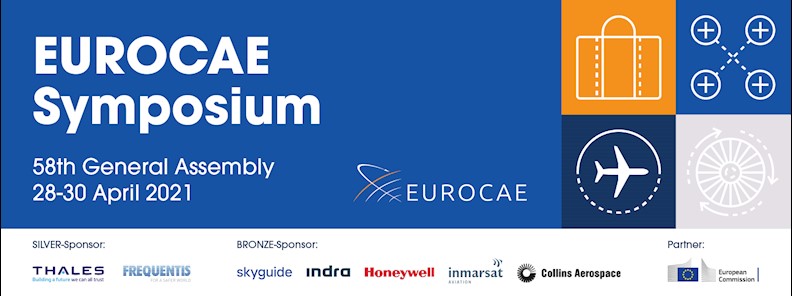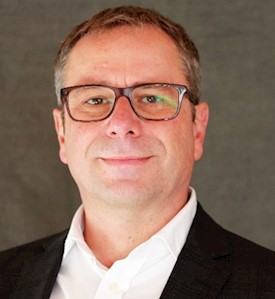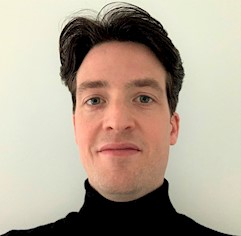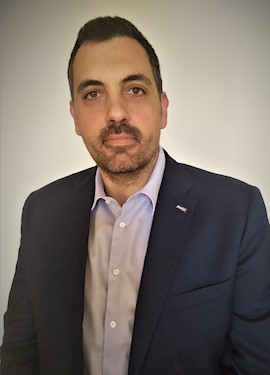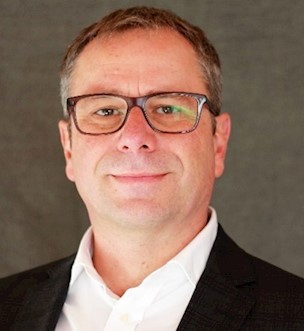EUROCAE´s annual Symposium took place on 28-30 April 2021 with participation from top industry leaders and regulators from Europe and around the world. The event aimed at gathering the vision, strategies and priorities from all relevant aviation stakeholders and shape, tailor and guide EUROCAE´s strategy on how to support aviation developments and how to contribute to achieving the overall targets.
DOWNLOAD FULL AGENDA
DAY 1 | Wednesday, 28 April
Opening remarks
The 2021 edition of EUROCAE Symposium was opened by Henrik Hololei, Director-General for Mobility and Transport, European Commission. In his statement he emphasised the need to create a European ATM system that is highly digitalised, resilient and environmentally efficient, able to integrate safely a wide variety of new aerial vehicles alongside conventional manned aircraft. Standardisation plays a crucial role in the overall ATM modernisation framework and EUROCAE is contributing enormously to facilitate the development of standards that are fit for purpose.
Bruno Ayral (Thales), EUROCAE President and Council Chair, highlighted the good performance of EUROCAE to embrace current challenges and priorities and significantly enlarged its scope of expertise during the past years to properly address such important topics as: Artificial Intelligence, Virtual Centres, UAS, Counter-UAS, Hybrid Electric Propulsion or VTOL.
Christian Schleifer, Secretary General, added that, despite the fully virtual format, EUROCAE is expecting to gain useful insights and a concrete direction for our work programme which will lead to the change we are aiming for.
Panel 1 Services - future of ATM infrastructure
In Air Traffic Services, the quality-of-service provision became increasingly important over the last years. Digitalisation and virtualisation will support the service-oriented approach of ATM providing scalability and adaptability for future ATM.
Interoperability as well as the harmonisation of systems and operations are key. They need to be supported by a solid safety and security concept.
The panel looked also into various aspects of the Virtual Centre with representatives from manufacturers, the Air Navigation Service Providers, EASA and the Air Traffic Controllers Association and highlighted that regulation and standards need to be fit for purpose to facilitate the new concepts and a strong cooperation is required amongst all stakeholders in this respect.
Panel 2: Automation Artificial Intelligence
Following an overview of the context that has fostered the emergence of AI in the aerospace industry, panel 2 provided a broad set of use cases as the basis to discuss the implementation, regulation and standardisation of the technology.
These examples were set at the different levels of AI established by the EASA AI Roadmap: Level 1A Human augmentation, Level 1B Human assistance, Level 2 Human-machine collaboration, Level 3 more autonomous machines.
AI is a key enabler for automation.
DAY 2 | Thursday, 29 April
Visionary Talks
The Visionary Talks gathered high-level panelists representing ICAO, the European Commission, EASA and IATA. They highlighted the main challenges and expected changes in the aviation landscape such as the need to:
- shift from incremental to fundamental changes: growth has outpaced efficiency improvements
- address challenges in a more effective way than before: stimulating interoperability, digitalisation, innovation, new procedures and products enabled through a more performance-based approach
- enhance the complementarity between the regulatory framework and standards
- move faster and more decisively to implement efficiency improvements
- manage the integration of innovation into an effective safety management system
- ensure sufficient level and availability of skilled staff, to enable confident delivery of the technical capabilities
The discussions during this panel will for sure be continued ...
PRE-RECODED SESSIONS:
Panel 3: Innovations, Environment and Sustainability
This panel discussed how the aeronautical industry can reduce its environmental impact by using new technology, infrastructure,operational improvements and market-based measures. Many efforts are directed at finding the most efficient solutions to reduce emissions from the technology perspective like electric aircraft, hydrogen propulsion, sustainable aviation fuels but also at the ATM level such as flight trajectory optimisation, smart ATM procedures and AI applications to support ATM.
The Panel agreed that a combination of different solutions could support achieving the sustainability goals. Improving existing systems in combination with innovation are considered essential but there is also the need to ensure the right certification basis.
Another challenge is to ensure that efficiency in the air is supported by the right infrastructure on the ground. Airports are already looking into solutions including operational improvements (e.g. electrical pushback, one engine taxi). Collaboration between all the involved parties is a strong must to be able to reach the proposed objectives.
DAY 3 | Friday, 30 April, 12:00-16:00 CEST
Cross industry panel
The cross-industry panel looked at how other sectors address innovation and emerging technologies from a product lifecycle and certification perspective.
Different approaches were outlined based on the experience in the pharmaceutical and medical devices industries, telecommunications and automotive sectors.
All of the experts agreed that safety is paramount. The panel recognised that innovation and technological development are often long, iterative cycles. This process involves multiple stakeholders and their interests, which often are not easy to combine. Innovative solutions need to be integrated with legacy systems and consider societal perspectives. Regulatory processes need to accompany these changes.
It was highlighted that such processes can be quick when there is an important safety issue at stake, as demonstrated, e.g. with the development of vaccines to fight against the COVID-19 pandemic.
Synergies can be established between the aviation and other sectors, for example:
- Moving towards higher levels of automation aviation could benefit from the experience on the automotive side, which uses more and more integrated, autonomous systems based on sophisticated software, electronics, sensor fusion etc;
- Increased use of digitalisation and other innovated methods throughout the different phases of the R&D cycle;
- Certification processes and procedures in the medical devices industry are commensurate to the level of criticality of the devices, and different classes of devices define different certification processes, following a risk-benefit analysis and approach.
The panel agreed that innovation needs to be implementable and accessible. In the end, aviation has a lot to learn and gain from connecting with other industries to benefit from their innovations and experiences. All stakeholders – industry, users, regulators, society, … - need to work together to achieve this objective, enabling innovation and emerging technologies.
PRE-RECORDED SESSIONS:
Panel 5: Role of standardisation for a sustainable recovery
The COVID crisis impacted every player in the aviation network in an unprecedented way. The panel gathered the representatives of different aviation industry associations who discussed about the changes in their operational environment but also the way they addressed these challenges and built resilience.
Short-term goals are not a solution - industry needs long-term recovery planning. Building resilience is critical to long-term planning and addressing future challenges. The role of standards is increasing, and global harmonisation becomes even more a top priority.
There is no single path to sustainability: deploying new technologies, collaborative efforts, defragmentation, to name a few, play an important role in making this happen. Also, governments and industry need to enhance their interaction to support a quick and durable recovery.
Closing remarks:
EUROCAE Awards 2020 / 2021
13:00 - 16:10DAY 1 | Wednesday, 28 April
Opening remarks: Plenary (13.00- 13.30)
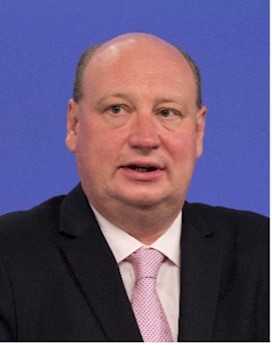 |
Henrik Hololei, Director-General for Mobility and Transport, European Commission Henrik HOLOLEI is an economist by training and holds degrees from Tallinn Technical University and Aarhus University in Denmark. He held various positions in the Estonian Government Office between 1995 and 2004. He was mainly responsible for coordinating the work for the Estonian accession to the European Union. In 2001-2002, he was Minister of Economy. In 2004, he moved to the European Commission as Head of Cabinet of Vice President Siim Kallas until 2013, when he became Deputy Secretary General. In October 2015, he became Director-General for Mobility and Transport in the European Commission.
|
|
Bruno Ayral, EUROCAE President and Council Chair Bruno works with Thales Land and Air Systems France, as Director of Product Engineering for TopSky-ATC (Thales solution for En-route and Approach Air Traffic Control Centres) in Europe. He has been active in the Air Traffic Management domain for 30 years, through expert and managing roles, including:
Bruno sits at the EUROCAE Council since 2008, representing Thales LAS France. As part of the Council, he acted as Treasurer for several years, as well as Vice-Chair. Following the EUROCAE General Assembly in October 2020, Bruno was elected Chair of the Council and acts as President of EUROCAE. |
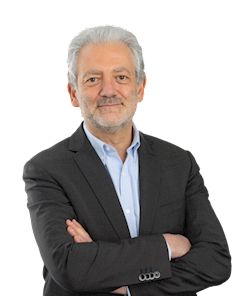 |
|
|
Christian Schleifer, Secretary General, EUROCAE Christian Schleifer is serving as Secretary General at EUROCAE since July 2014. Christian is responsible for the operational management and development of the Association and its subsidiary EUROCAE Communication as CEO. As former President of the Air Navigation Commission (ANC) of the International Civil Aviation Organization (ICAO) he was responsible for developing Standards and Recommended Practices (SARPs) in the field of Air Navigation and Safety. Prior to his posting at ICAO, Mr. Schleifer was in charge of Aircraft and Equipment Certification, Airworthiness and Operational Requirements at the Austrian Civil Aviation Authority. In this role, Christian Schleifer was a specialised Certification and Flight Test Engineer for Avionics, Electrics and Human-Machine interface. After his return from ICAO, he was involved in the strategic development of the ANS in Austria, contributing to the European and Global Air Navigation modernisation programmes. Christian has a background in Electronic Engineering and is holding a Commercial Pilot License (CPL) and actively flies single and multi-engine aircrafts. Beside the technical aviation background, he is holding a Global Executive MBA from the University of Minnesota and the Vienna University of Economics. |
Panel 1 Services - future of ATM infrastructure (13:30-14:45)
Air Traffic Management is currently moving towards a service-oriented approach where there is not necessarily a direct link anymore with the organisation providing these services. Remote services, virtualisation of the environment and centralised provision of services are considered to be the future of ATM.
Provision of centralised flow management has already for many years been provided by EUROCONTROL and this will be the main responsibility for the Network Manager in the coming years. 2019 was a challenging year with the airspace capacity at its limit. In order to make sure that a similar situation won't happen in future, the Network Manager has launched a programme called integrated Network Management - iNM.
Establishing a virtual centre environment comes with multiple challenges related to technology, operations regulations and human resources - just to name a few. The second part of Panel 1 will look into these various aspects of the Virtual Centre with representatives from manufacturers, the Air Navigation Service Providers, EASA and the Air Traffic Controllers Association.
Moderator:
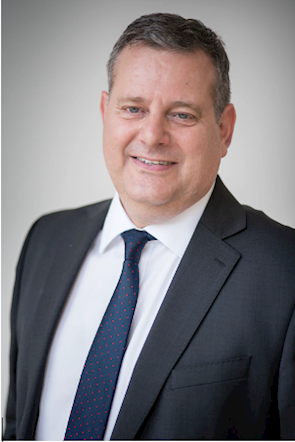 |
Peter Hotham, Deputy Executive Director, SJU Peter is currently the Deputy Executive Director of the SESAR Joint Undertaking in Brussels. Peter graduated in ‘Aerospace Studies’ and has a Post Graduate Diploma in ‘Computing for Commerce & Industry’ and is a Fellow of the Royal Aeronautical Society. Peter has over 35 years of experience in Air Traffic Management operations and technology in airports, control centres and their respective infrastructure. He has undertaken a number of roles including design, project management, architecture and senior management across a range of aviation safety related operations, systems and infrastructure activities. Peter joined the SESAR Joint Undertaking in 2008 from NATS, the UK Air Navigation Service Provider. In this time, he has undertaken a number of senior roles including responsibility for systems design/architecture and standards, long term and innovative research and the JU corporate functions. |
Speakers:
|
Philippe Bochet, ATC Product Line Director, Thales – Airspace Mobility Solutions True expert in Air Traffic Management systems, Philippe Bochet has worked for Thales for 30 years. During 15 years since 1998 he held the role of Engineering Program Manager for many ATC Centres in Europe, then, in 2013 he became Engineering Department Director for European projects. Today, Philippe is the ATC product line Director for Airspace Mobility Solutions, based in Rungis, France. In his role, Philippe is in charge of defining product roadmaps and governance for air traffic control systems (including tower, approach and en-route solutions) from technological, functional and business perspectives. Philippe holds an Engineering degree in aeronautics, specialized in Data processing and Air Traffic from ENAC (National French Civil Aviation School) and is passionate about aviation.
|
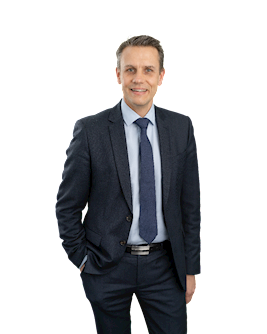 |
|
Philippe Chauffoureaux, Deputy CIO, Skyguide Philippe spent his last 20 years at skyguide in different functions as Head of Radar Data Processing, Head of Technical Supervision, CIO ad interim and now is in charge to manage the architectural transformation required by skyguide to accomplish its strategic objectives. He has extensively participated to the launch of the Virtual Center program since its beginning and his current unit is in charge of the System and Security architecture and active in the build-up of the skyguide EA framework. Philippe is also currently chairing the EuroCAE Workgroup WG-122 "Virtual Centre" since November 2020.
|
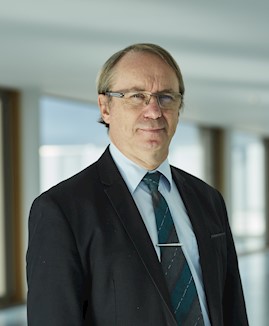 |
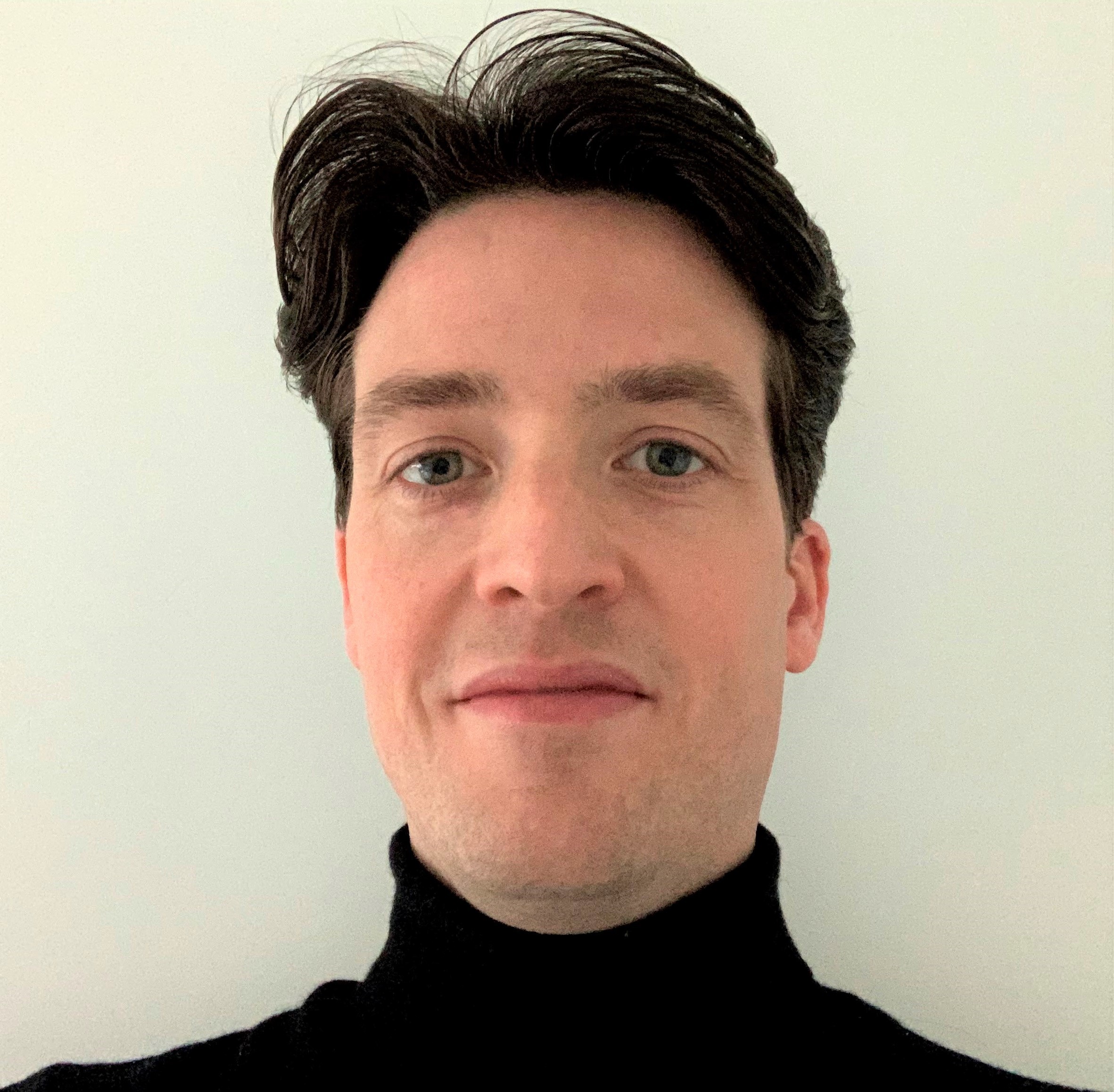
Sil De Gang, iNM Programme Manager, EUROCONTROL Currently working as iNM Programme Manager within the Network Management Directorate of EUROCONTROL. Graduated at the royal military academy (Brussels) in 2006 as a master of science in engineering, specialized in telecommunications. Immediately took the opportunity to lead a team of 25 maintenance technicians, responsible for a NATO air defence radar system. Moved to the military headquarters in 2010 as surveillance and navigation manager, responsible for the whole asset, purchase and programme management of the Belgian defence surveillance and navigation systems. Left Belgian Defence in 2016 and started his career at skeyes, within the CEO staff department of skeyes (strategic projects). In that position, responsible for coordinating two of the four strategic programmes of skeyes, e.g. the implementation of the civil-military Air Traffic Management (ATM) synergy program and the replacement of the ATM system – SAS3 programme. |
|
|
Raul Berrocal De La Calle, ITEC Chief Architect, Indra Senior and enthusiastic engineering professional with in-depth knowledge and experience in designing and delivering air traffic management (ATM) systems for large and complex environments. Focused on helping the customers in their business transformation leveraging the new IT technologies to increase productivity and reduce costs while maintaining highest standards in safety and security. Working in INDRA from 1999, I have been involved in ATM industry for almost 20 years. From November 2017, I am the Chief architect for ATM Programs and Indra’s representative for System Architecture group in the iTEC Collaboration. Previously, I have been actively involved in several ATM programs as System Engineering manager and System Architect, including the delivery of iTEC system at NATS UK and the migration of iTEC to a virtualized data centre infrastructure. |
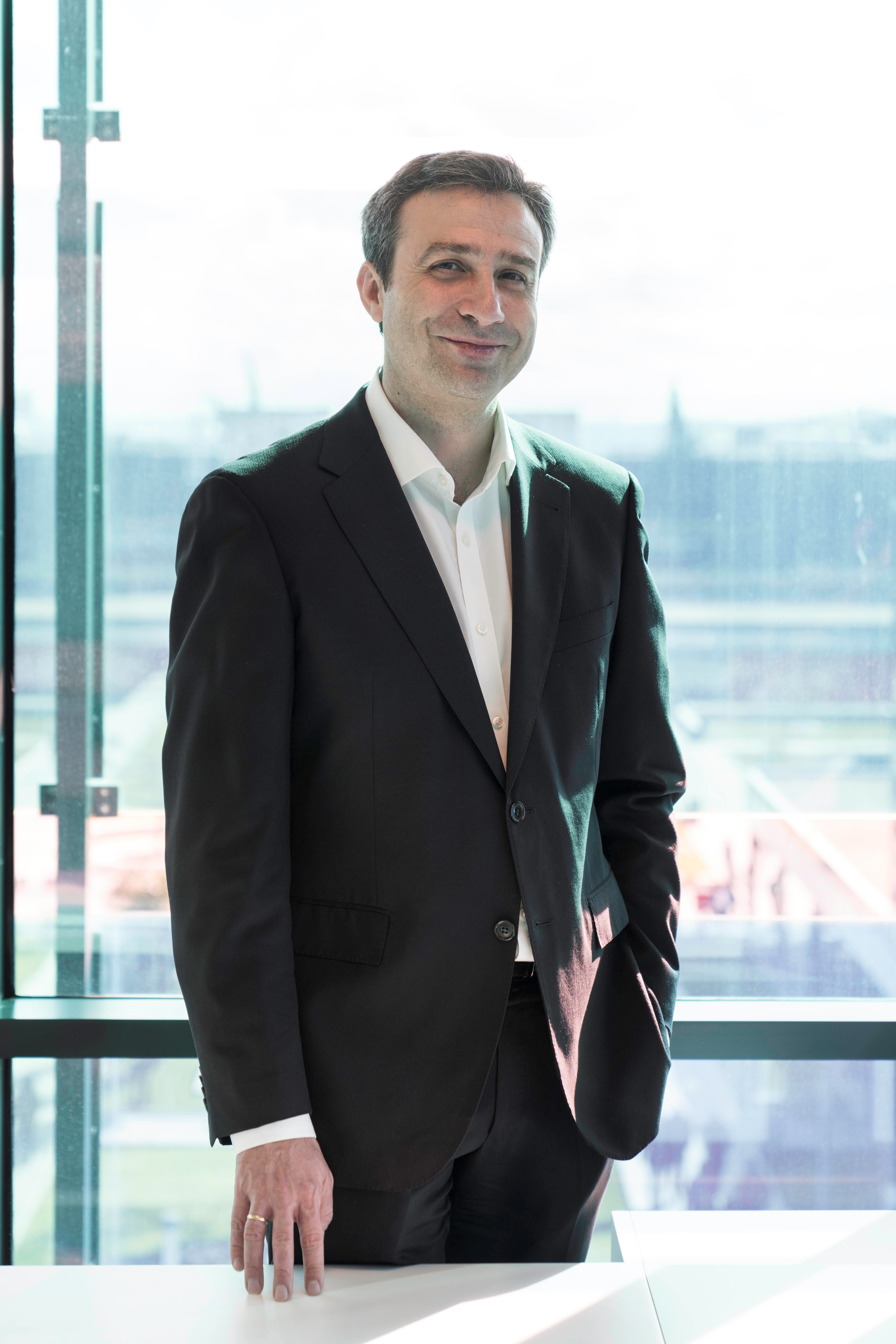 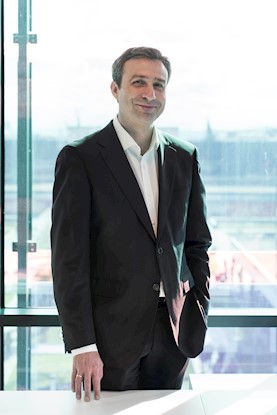 |
|
Eugenio Diotalevi, Air Traffic Controller, IFATCA Eugenio has been an air traffic controller since 2003. The first operational base has been Pisa Airport as military TWR controller from 2003 to 2008. Since 2010, he's been working in Padova ACC as a civil area controller. Within IFATCA, he has been representing Italy in the Legal and professional Committee since 2018 and he was nominated as Remotely Piloted Aircraft Task Force Coordinator in 2019. In this position, he’s collaborating in several working groups within ICAO, IATA, SESAR and EUROCAE. In the latter, he’s co-representing IFATCA in WG-122 Virtual Centre. He’s been in the Executive Board of ANACNA, the Italian Air Traffic Controller Association, since 2016 and at present, he’s the Director of the Foreign Affairs Office. |
|
|
Manuel Rivas Vila, Manager ATM Oversight, EASA Manuel RIVAS VILA is an aeronautical engineer by background, with extensive experience in the provision of ATM/ANS and the EU ATM/ANS regulatory and institutional framework. After working for more than a decade for the Spanish En route Air Navigation Service Provider, in 2013 he joined EASA as ATM/ANS oversight team leader, where he has been responsible for the initial certification and continuous oversight of a number of pan-European service providers, as well as third country organisations providing services in the EU. Since the beginning of 2020, he occupies the position of ATM Oversight Section Manager. As well, he is involved in ATM/ANS regulatory and standardisation activities. He currently chairs the European ATM Standards Coordination Group (EASCG). |
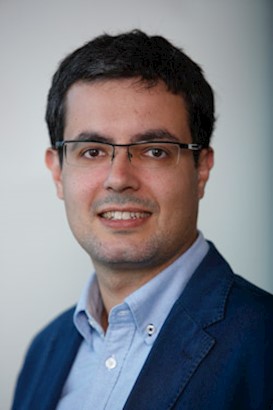 |
Panel 2: Automation Artificial Intelligence (15:00-16:10)
Automation based on Artificial Intelligence (AI) is playing a major role in the transformation of the aerospace industry. In this session on Automation AI, we are investigating what can AI do to facilitate the implementation of future innovative applications. This session will look into these technological developments and make the link between innovation, regulatory framework and standardisation needs.
Moderator:
Hassan Semde, Software & Airborne Electronic Hardware Expert, EASA
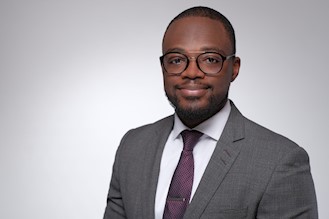 |
Hassan Semde, Software & Airborne Electronic Hardware Expert, EASA Hassan joined EASA 3 years ago as a Software and AEH expert on the certification Directorate, as part of his mandate Hassan is member of the EASA Artificial Roadmap project team and also following the SG4 in WG-114. Prior to joining the agency Hassan spent 10 + years as a Software certification expert and engineer first at Thales Avionics then at Dassault Aviation with a focus on development of embedded systems (Flight controls, Avionics, Propulsion, Power system…) |
Speakers:
|
Ginette P. Bebeung, Executive Vice-President, Searidge Ginette is a technology leader with over 20 years of experience who has been with Searidge Technology since the company’s early beginnings. As Executive Vice president, she successfully contributes to maintaining a consistent trajectory of growth for Searidge, with focus on Strategic Partnerships and complex deals negotiations. For more than a decade, Ginette has served in various Leadership functions within Searidge, including successfully leading multiple Digital Tower programs, designing effective corporate policies and feeding into Searidge’s innovation roadmap. |
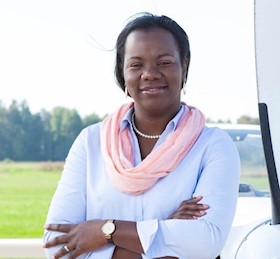 |
|
Dr. Darren Cofer, Fellow, Collins Aerospace Dr. Darren Cofer is a Fellow at Collins Aerospace. His principal area of expertise is developing and applying advanced analysis methods and tools for verification and certification of high-integrity systems. He is the principal investigator for Collins teams working on DARPA's Cyber Assured Systems Engineering (CASE) and Assured Autonomy programs. Dr. Cofer served on RTCA committee SC-205 developing new certification guidance for airborne software (DO-178C) and was one of the developers of the Formal Methods Supplement (DO-333). He is currently a member of SAE committee G-34 for Artificial Intelligence in Aviation, the Aerospace Control and Guidance Systems Committee (ACGSC), and a senior member of the IEEE. |
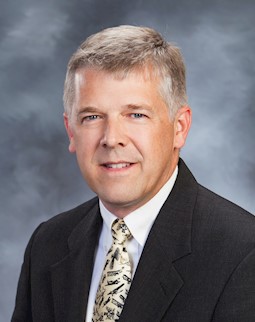 |
|
Wolfgang Hatzack, Chairperson & CEO, ATRICS (Frequentis) After finishing his military services in the German Air Force in 1990, Wolfgang was offered a pilot career at Deutsche Lufthansa. After earning his pilot license in 1993, he decided to take up another challenge and graduated as a M.Sc. in Computer Science in 1996. He then worked as a researcher at the University of Freiburg in the department of Artificial Intelligence where he initially focused on multiagent systems and robotics. After becoming the world champion in robot soccer in 1998, he wrote a PhD thesis on airport surface traffic planning in which he combined his passion for aviation with artificial intelligence. As major ATM system suppliers started to showed great interest in his work, Wolfgang founded ATRiCS in 2002 with the clear vision to shape the ATM market by pioneering the devleopment of AI-based technologies for planning and optimisation. |
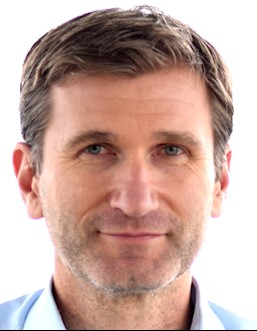 |
|
Ammar Mechouche, Data Processing & Data Science Expert, Airbus Helicopters Ammar MECHOUCHE is a Data Processing & Data Science expert at Airbus Helicopters (AH). He joined Airbus in 2013 as a research engineer. He first developed a big data solution which enabled the processing of the big amounts of data collected from helicopters flying worldwide. He has been since contributing to the development of the helicopter data analytics activity in order to generate business value for AH and its customers. Previously, Ammar has been awarded a Ph.D. from the University of Rennes 1 in 2009. He worked on the development of an AI-based system for medical image analysis. Before joining Airbus, he has been working as 1) a post-doc in data science at the research department of the French Mapping Agency for 1 year; 2) a post-doc at the LIS Lab of Aix-Marseille University for 1 year; and 3) a software engineer at Thales for 2 years. Ammar is co-author of more than 20 papers published in peer reviewed conferences / journal; mainly in the computer science / helicopter domains. |
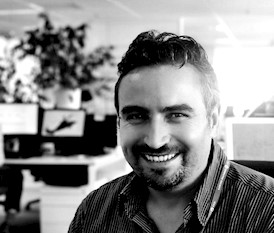 |
|
Sylvie Sureda-Perez, Senior Director Datalink Solutions, Inmarsat Sylvie has worked in ATM and aviation for more than 20 years. She started her career consulting on the implementation of future ATM systems. She joined industry leader Thales ATM in 2003, followed by the joint venture created by Thales with Airbus (the Air Traffic Alliance) that established the SESAR programme. She was hired by Airbus in 2008 and worked with the SVP strategy to lead the creation of the subsidiary Airbus ProSky, where she was responsible for ATM services, including marketing, communication and business development. She joined Inmarsat in 2015 and leads the Iris project, developing satellite technology usage in dense continental areas. She in particular manages the strategy and business perspectives and is responsible for relationships with key industry and institutional stakeholders. |
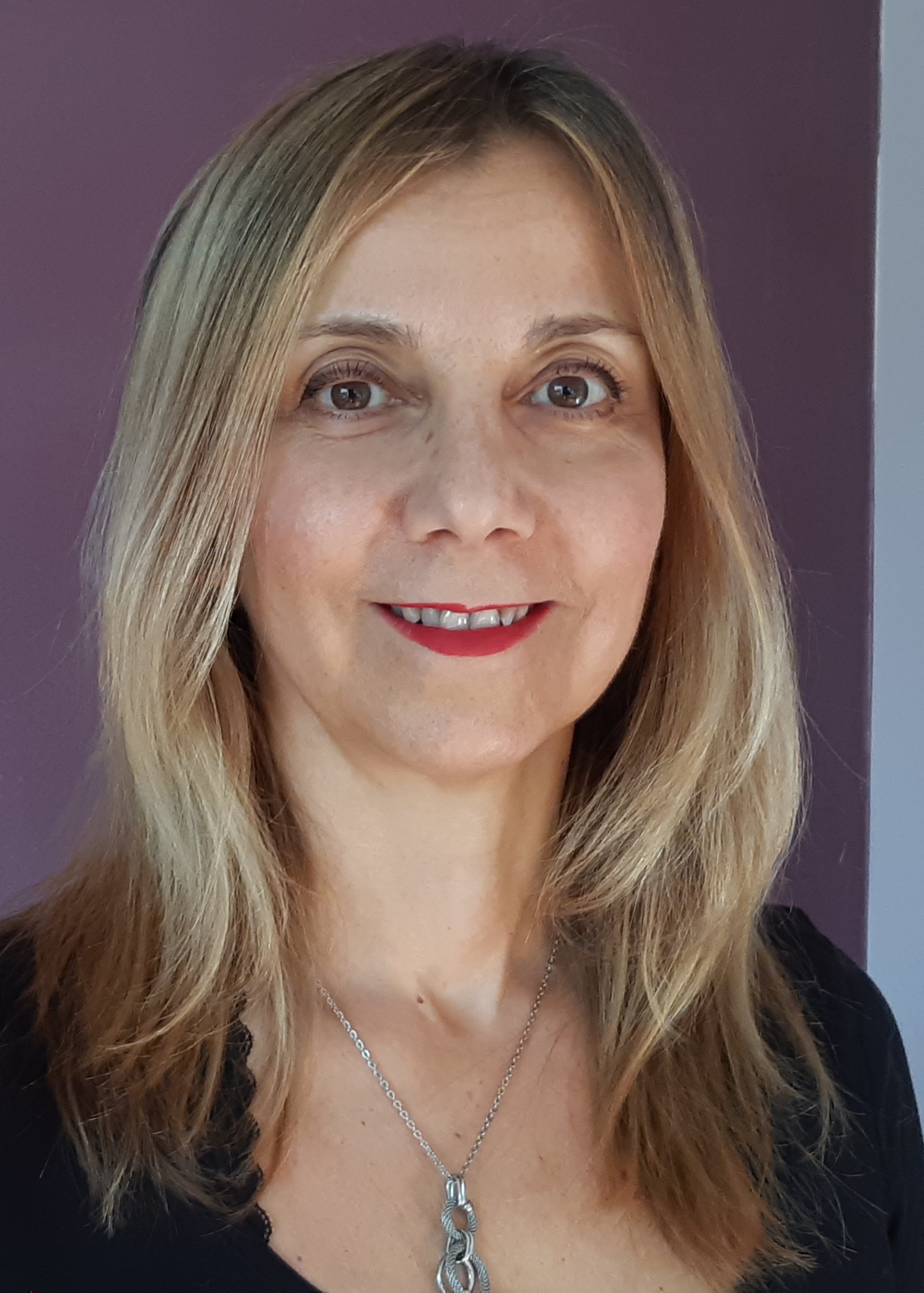 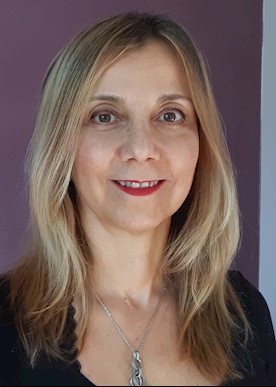 |
DAY 2 | Thursday, 29 April
12:00 - 14:15
Visionary Talks (12:00-12:45)
Various forecasts predict that the aviation sector will triple its volume by 2050, whilst having to considerably reduce its environmental impact and emissions such as CO2, NOx and noise.
These are ambitious targets, and whilst the impact of the global pandemic still remains to be seen, the overall trend should remain the same: the aviation industry should grow, but in a sustainable and smart way.
Reconciling these – on first sight contradictory – trends will be a key issue in the next decades.
What will be challenges of aviation in the future?
What energy sources will be available to aviation, which aircraft and concepts will be efficient to serve the demand on passenger and cargo transport?
What impact will new technologies and new entrants have on aviation, and how can they be leveraged by the aviation community?
These questions will be discussed by our panel aviation visionaries.
Moderator:
|
|
Christian Schleifer, Secretary General, EUROCAE Christian Schleifer is serving as Secretary General at EUROCAE since July 2014. Christian is responsible for the operational management and development of the Association and its subsidiary EUROCAE Communication as CEO. As former President of the Air Navigation Commission (ANC) of the International Civil Aviation Organization (ICAO) he was responsible for developing Standards and Recommended Practices (SARPs) in the field of Air Navigation and Safety. Prior to his posting at ICAO, Mr. Schleifer was in charge of Aircraft and Equipment Certification, Airworthiness and Operational Requirements at the Austrian Civil Aviation Authority. In this role, Christian Schleifer was a specialised Certification and Flight Test Engineer for Avionics, Electrics and Human-Machine interface. After his return from ICAO, he was involved in the strategic development of the ANS in Austria, contributing to the European and Global Air Navigation modernisation programmes. Christian has a background in Electronic Engineering and is holding a Commercial Pilot License (CPL) and actively flies single and multi-engine aircrafts. Beside the technical aviation background, he is holding a Global Executive MBA from the University of Minnesota and the Vienna University of Economics. |
Speakers:
|
Filip Cornelis, Director for Aviation, DG-MOVE, European Commission Filip Cornelis is Director for Aviation (DG MOVE Directorate E) in the European Commission, in charge of Aviation since October 2017. He joined the European Commission in 1994. After a posting abroad, he worked in the Task Force for Accession Negotiations. He then led the Commission team drafting the Treaties of Accession for the 12 new EU Member States. In January 2006, Filip Cornelis moved on to transport policy by joining the Office of the Director General for Energy and Transport, Mr Matthias Ruete. He was the leading member of the Office from 2008. He was then appointed Head of Unit for Aviation Security in the European Commission in September 2010. He moved on to become Head of Unit for Aviation Safety from December 2012 until October 2016. He subsequently became Head of Unit for Aviation Policy until his appointment as Director for Aviation. |
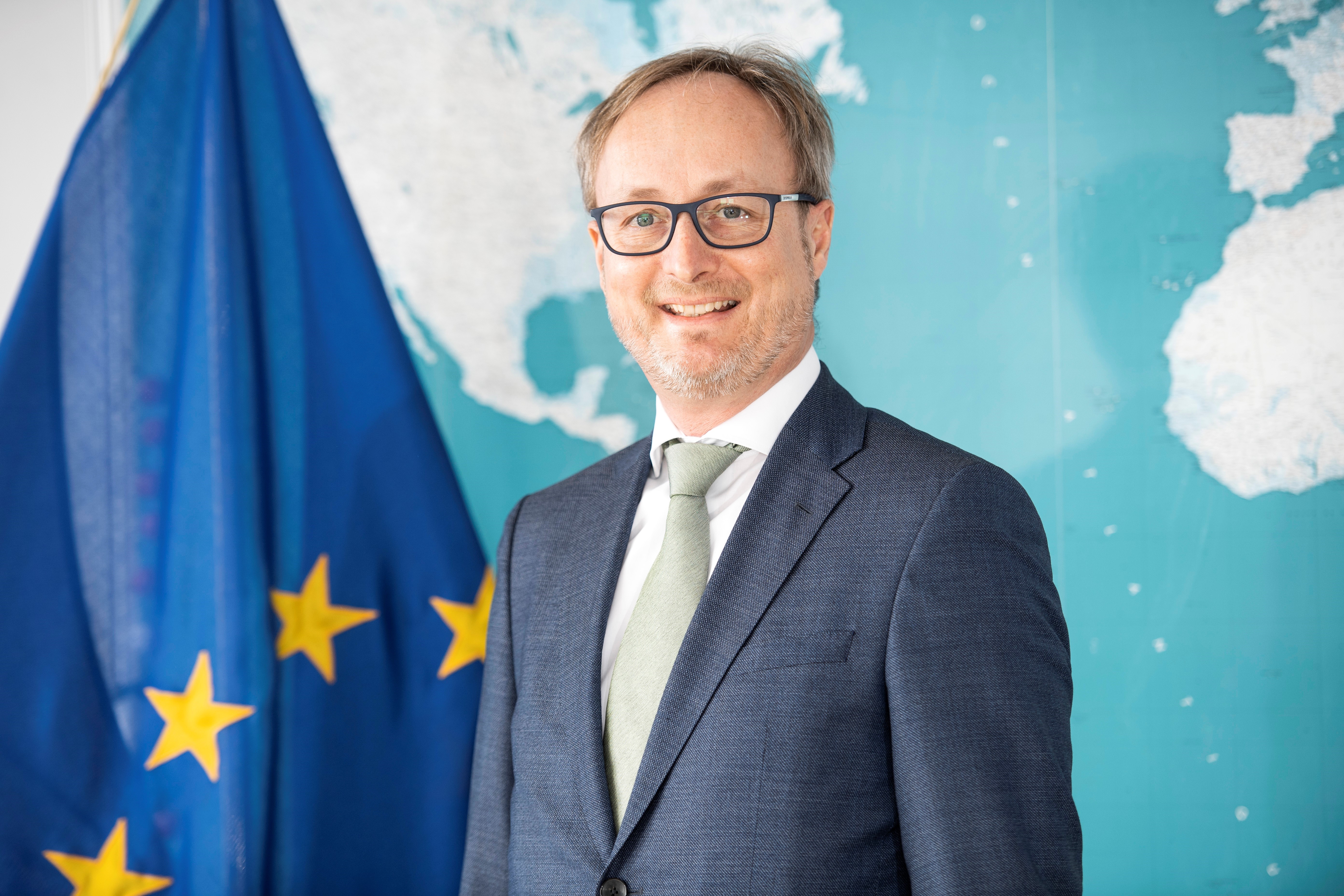 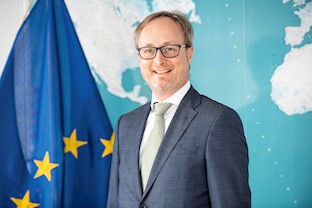 |
|
Stephen P. Creamer, Director Air Navigation Bureau, ICAO Steve Creamer has served as Director of the Air Navigation Bureau at ICAO since April 2015. Steve previously held a number of executive and managerial positions at the U.S. Federal Aviation Administration with over 33 years experience in the Air Traffic and International Aviation organizations. They Include serving as FAA Regional Office Director for Europe, Africa and the Middle East; and serving as a member of the ICAO Air Navigation Commission. Steve began his career in air traffic operations, eventually managing all Alaskan and North Pacific airspace, pioneering new airspace use techniques that improved capacity and access for all operators. More recently his work has broadened to the international implementation of procedures and technology systems that improve aviation safety, with a careful eye toward retaining capacity and efficiency. |
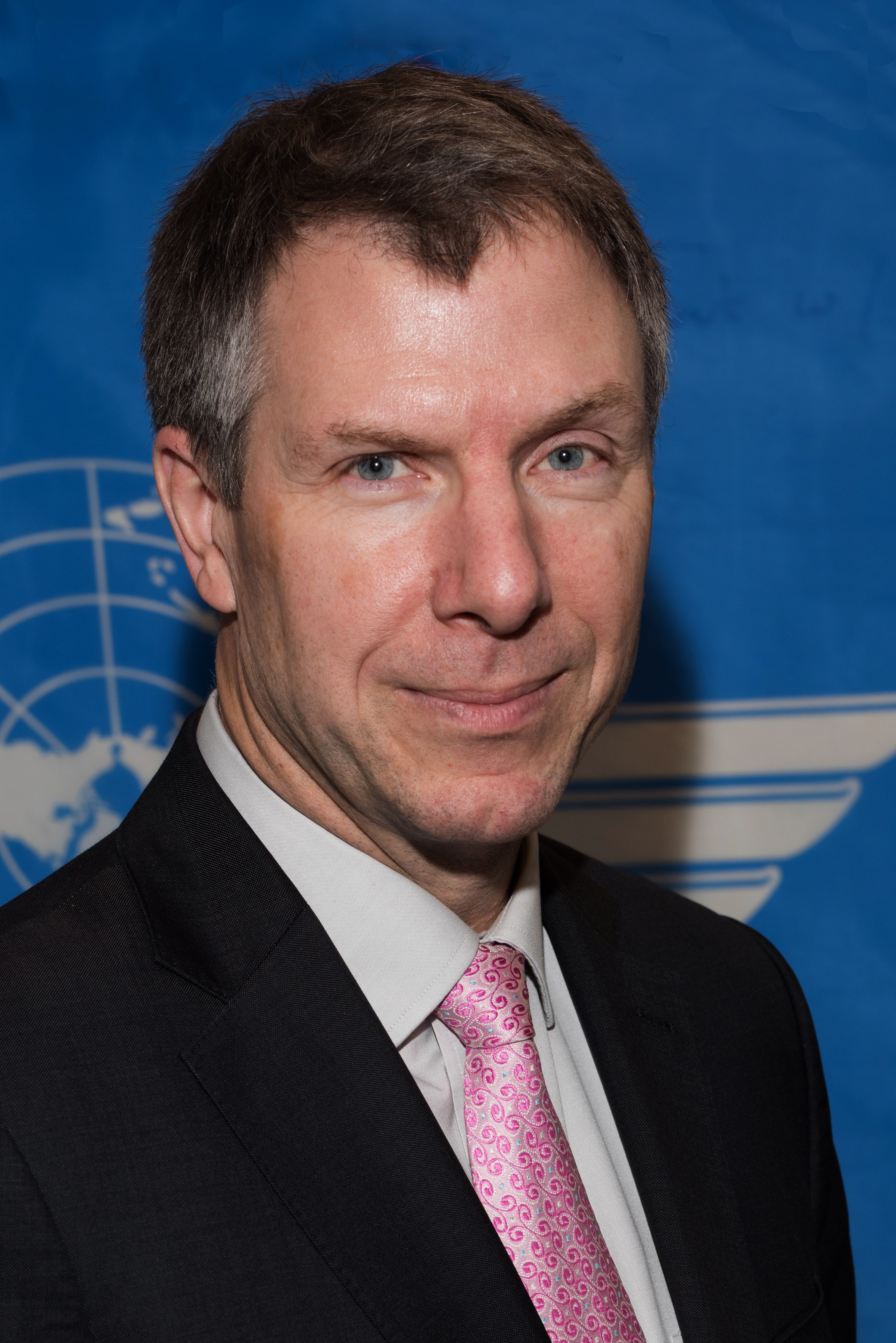 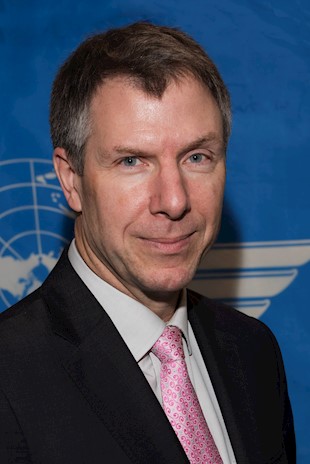 |
|
Rafael Schvartzman, Regional Vice President, Europe, IATA Rafael oversees 55 countries across Europe and Central Asia, advocating for the interest of IATA's members and strengthening the relationships with aviation stakeholders. His career with IATA began in 2005 in Buenos Aires, as Country Manager for Argentina, Uruguay and Paraguay.
Rafael's aviation expertise also includes a 10-year tenure at DHL in the Americas and experience working for a range of air transport companies in South America. Rafael holds a Master in Positive Leadership and Strategy from IE Business School and a Bachelor of Science in Economics from the University of the Pacific. He has lived in numerous countries including Argentina, Ecuador, Spain, United Kingdom and the United States. He speaks Spanish and English. |
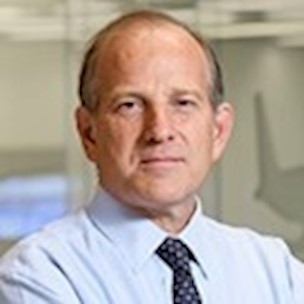 |
|
Luc Tytgat, Strategy & Safety Management Director, EASA Director, Strategy and Safety Management Directorate Luc Tytgat is since 1st January 2015 Director of the Strategy and Safety Management Directorate of the European Aviation Safety Agency (EASA). Luc Tytgat is in charge of adapting EASA’s key priorities to the challenges faces by the aviation industry and developing a better and more agile regulatory framework. Prior to EASA, Luc Tytgat was the Director of the Pan-European Single Sky Directorate at Eurocontrol since 2011, after having worked for 20 years in the field of air transport and space at the European Commission and 10 years in the Belgian Air Force. Luc Tytgat also has a significant experience when dealing with matters related to the European Commission. Luc Tytgat also initiated the GALILEO programme and established the EU competence in the space policy sector. |
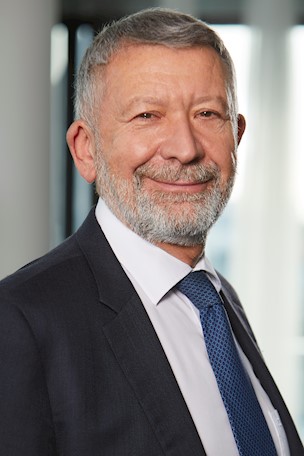 |
Panel 3: Innovations, Environment and Sustainability (12:50-14:15)
This panel discusses how the aeronautical industry can reduce its environmental impact by using new technology, infrastructure and operational improvements and market-based measures. In the past, ambitious goals were set to fight the climate crisis – Is it still possible to reach the targets and how do the needs of ordinary customers change in a challenging post-COVID environment?
Main topics to be addressed, but not limited to, are innovations, environmentally friendly aircraft, green flight, hydrogen, zero-emission aviation powertrain, noise and pollution around the airports and efficient routing and approaches.
Moderator:
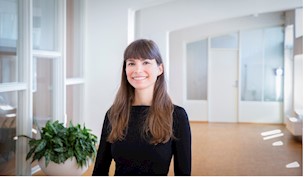 |
Elisabeth van der Sman, Consultant Sustainable Aviation, NLR Graduated from Aerospace Engineering at Delft University of Technology in 2016. She wrote her master thesis at the department of Control and Simulation specializing in autonomous micro air vehicles. After her studies, Elisabeth worked for nearly two years for Shell. In this role, she acquired knowledge on and gained interest in the energy transition from fossil to renewable energy sources. She joined NLR in August 2018 in the department of Environment and Policy Support as an advisor in the field of sustainable aviation. Research topics include (hybrid-)electric flight, hydrogen-powered aviation, biofuels and synthetic fuels. Elisabeth works in close collaboration with the Dutch Government to address the reduction of CO2 emissions based on the Paris Agreement and ICAO aspirational goals. She was the project leader of Destination 2050 – A Route to Net Zero European Aviation. The project, launched as the European aviation sector's flagship sustainability initiative, investigated measures and policies to reduce CO2 emission based on technical improvements in aircraft and engines, ATM and operational improvements, the use of sustainable fuels and economic measures. |
Speakers:
|
Yannael Billard, Head of Environment-Energy Department, ADP After 15 years of consulting in the field of energy and environmental transition, Yannael joined Groupe ADP in 2019, to become responsible for the Environment-Energy Department. Participating in the aviation sector’s environmental transition is one of the key environmental strategic axis led by the Department. |
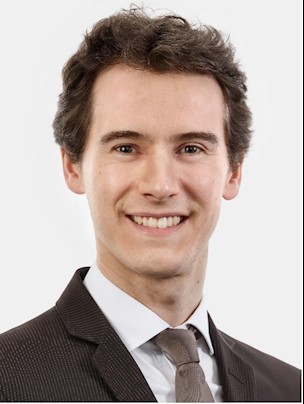 |
|
Stephan Schlisske, Chief Airworthiness Engineer, Rolls Royce Stephan Schlisske holds the position of Chief Airworthiness Engineer at Rolls Royce Deutschland Business Aviation in Dahlewitz. Previous positions were Technical Director – Engineering and Production for EUROJET in Munich, Chief Validation Engineer TP400 for EUROPROP International EPI in Madrid, Chief Development Engineer Fleet for RRD in Dahlewitz and Development Program Manager TP400 for EUROPROP International EPI in Madrid. |
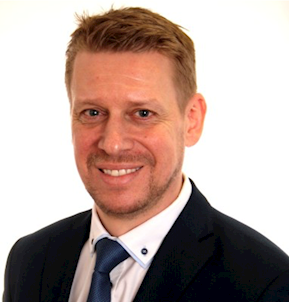 |
|
Jean-Marc Flon, Director Air Operations Safety and Development, ADP After 18 years of extensive experience in Tower and Approach air traffic control as an ATCO, held different positions in ATS management with various local, regional or national responsibilities: firstly as ATC Manager at Nice airport, then as head of Operations department for the French DSNA south-eastern air navigation service (in charge of service provision at Nice and Cannes airports and terminal airspace management in the south eastern part of France including Corsica) and finally as general manager ATS at Paris Charles de Gaulle airport. For over 3 years has been seconded by the French CAA as national expert to the European Commission DG MOVE in the Single European Sky unit. There, he has been in charge among other files the Network Functions Regulation revision as well as coordinating the EU and ECAC contribution in terms of safety and air navigation matters to ICAO high level events. He joined Groupe ADP last September as Director of Air Operations Safety and Development at the Operations General Directorate. |
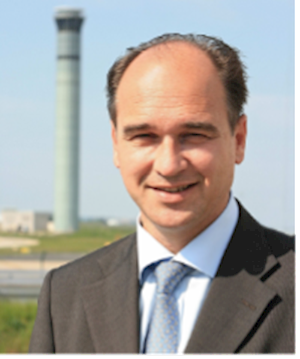 |
|
Nicolas Jeuland, "Future Fuels" Expert, Safran Nicolas JEULAND has worked for 15 years in the Oil sector at IFP (formerly Institut Français du Pétrole) as project leader and then leader of the “Fuels, Lubricants and Emissions” department, a team of 30 persons dedicated to fuel and biofuels formulations, lubricants validation and pollutant emissions assessment. He joined Safran group in 2016 as Fuel expert, in charge of the coordination of all actions around fuels / alternative fuels in the group, and especially research activities. From 2019 he coordinates all R&T activities of Safran around Low Carbon Fuels (Biofuels, hydrogen…). He is also in charge of prospective action around environmental impact of aviation and is representing Safran in various European and international groups : Co-chair of ACARE (Advisory Council for Aviation Research in Europe) WG3 on Environment, leader of Roadmap13 of Hydrogen Europe dedicated to Aviation and former chairman of WG3 (end users) of ETIP Bioenergy (European Technology and Innovation Plateform on Bioenergy). |
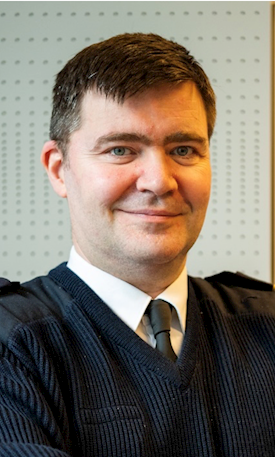 |
|
Prasanna Kumar, Head of Software, ZeroAvia Technology leader with over 20 years of experience, joined ZeroAvia 1 year ago as a Head of Software. One of the initial team members of ZeroAvia since their presence here in the UK. Led the software development and integration activities in ZeroAvia’s 250 KW Powertrain development. Throughout my career I was involved in the development of control systems for aircraft functions and railways signalling systems. Prior to ZeroAvoia, I was working on control systems like Landing gear control system, Steering control System, Ice protection, Mid-air refueling system and Door control systems for different aircrafts. In my last role, I was involved in the system development from inception to certification. I have been a member of the working group Forum for Aeronautical Software SC240/WG117 since 2015. |
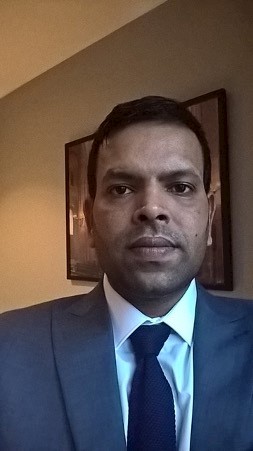 |
|
Jean Baptiste Manchette, Zero Emissions-Chief Technology, Airbus Since beginning of 2020, Jean-Baptiste Manchette is in charge, within Airbus CTO, to develop Zero Emissions Technologies.
Having worked on several programs, Jean-Baptiste has more than 15 years of experience within Chief Engineering Team: on A380 Safety and Electrical System Installation, as A350XWB Chief Engineer Executive Assistant and more recently as System & Cargo Chief Engineer on Beluga XL from Program Launch till Entry into Service.
Jean-Baptiste holds a degree of mechanical engineering of Université Technologie de Belfort-Montbéliard and a Master Diploma in Economics & Innovation from Strasbourg University. |
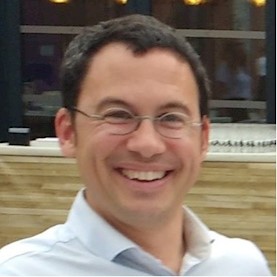 |
|
Stephane Marche, Engineer Fellow-Avionics, Honeywell Stéphane Marché is part of the Advanced Technology department within Honeywell Aerospace in Europe. He was hired at Honeywell for the role of Chief Architect of the SESAR program and then took expert and management positions. He was nominated Engineer Fellow in 2018. At this date, Stéphane is the only Engineer Fellow for avionics in Honeywell Aerospace Europe (~1000 engineers). Prior to joining Honeywell Aerospace in 2008, Stéphane spent 8 years at Airbus design office where he held various positions such as FANS Interoperability Specialist, ADS-B In Project Manager and ATM Research Coordinator. Before working at Airbus, Stéphane held system engineer and project leader positions during 8 years in research and development for Air Traffic Control systems, after 4 years working as software engineer in various industries. Stéphane holds a Master of Science degree (ingénieur) in electrical engineering from INSA Toulouse. |
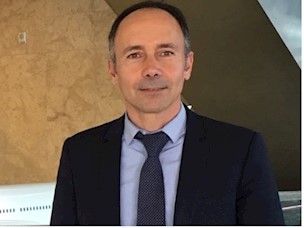 |
DAY 3 | Friday, 30 April
12:00 - 16:00
Panel 4: Cross industry panel (12:00-13:15)
How are other industry sectors addressing innovative and emerging technologies? How are certification and standardisation processes keeping up with the accelerating pace?
We would like to speak with experts from the medical and pharmaceutical industry, as well as the automotive and telecom industries how they are keeping up with the evolution and in some areas revolutionary technologies.
Moderator:
|
|
Christian Schleifer, Secretary General, EUROCAE Christian Schleifer is serving as Secretary General at EUROCAE since July 2014. Christian is responsible for the operational management and development of the Association and its subsidiary EUROCAE Communication as CEO. As former President of the Air Navigation Commission (ANC) of the International Civil Aviation Organization (ICAO) he was responsible for developing Standards and Recommended Practices (SARPs) in the field of Air Navigation and Safety. Prior to his posting at ICAO, Mr. Schleifer was in charge of Aircraft and Equipment Certification, Airworthiness and Operational Requirements at the Austrian Civil Aviation Authority. In this role, Christian Schleifer was a specialised Certification and Flight Test Engineer for Avionics, Electrics and Human-Machine interface. After his return from ICAO, he was involved in the strategic development of the ANS in Austria, contributing to the European and Global Air Navigation modernisation programmes. Christian has a background in Electronic Engineering and is holding a Commercial Pilot License (CPL) and actively flies single and multi-engine aircrafts. Beside the technical aviation background, he is holding a Global Executive MBA from the University of Minnesota and the Vienna University of Economics. |
Speakers:
|
Mirko Jakovlievic, TTtech Education: He received a Master’s and a PhD degree in Computer Technology from Vienna University of Technology, and a MBA from University of London. Current Position: Product Portfolio Manager – Deterministic Ethernet & Integrated Platforms at TTTech, focusing on advanced integrated architectures, autonomous systems and edge computing in cross-industry applications Organizations: Mirko Jakovljevic chaired SAE Avionics Application Technology Committee (ATC) from 2007 to 2015, and chairs SAE AS-2D standardization committee for Time-Triggered Architectures since 2008. Professional focus: advanced integrated systems, cyber-physical systems, distributed embedded platforms for critical applications, platform components (networks, SoC, software), system design methodology, safety, certification, complexity management and standardization. |
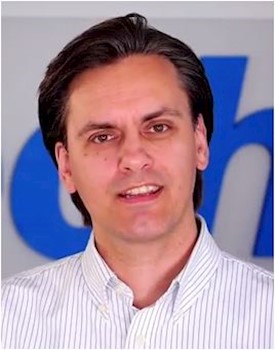 |
|
Andreas Lassak, Senior Global Expert Sales Manager, TSystems International Electrical Engineer and Software Engineer with proven track record in international IT and Telco industries. Experienced in Management, Business Development, Wireless, Cellular, 5G Technologies, IoT and Hardware-Development, Large Scale Software-Development and Global Sales, Participation in SESAR-JU Drone activities |
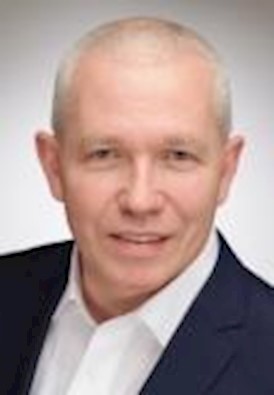 |
|
Hugh Laverty, Head of Scientific Operations, IMI I am the Head of Scientific Operations at IMI where I manage a team of scientific and financial officers responsible for the operational activities of the organisation. I am responsible for the overall planning, management and monitoring of calls for proposals and evaluations leading to projects/grant agreements and the management of the projects themselves. Prior to my current position I was a Senior Scientific Project Manager at IMI managing specific projects and overseeing IMI’s engagement with Small and Medium Enterprises (SMEs). Before joining IMI I worked as Industry Programme Manager at the Centre for Drug Safety Sciences at the University of Liverpool, UK. I also have extensive experience in the Biotech sector having spent nearly 10 years working in an SME identifying and developing recombinant proteins as novel therapeutics for the prevention of dermal scarring. Trained as a Molecular biologist I have a PhD in gene cloning and developmental biology with an interest in the earlier stages of drug discovery and development. |
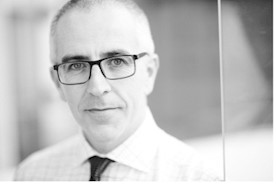 |
|
Wolfgang Schleifer, Data & Digital Delivery Lead, Pharma Novartis Dr. Wolfgang Schleifer MSc, Lead Data & Digital Delivery for Novartis Global Drug Development, is a leader for connected health solutions. He has a Dr in Computer Science from University of Technology Vienna in collaboration with the European Center of Nuclear Physics (CERN) Geneva and a Master of Science in Regulatory Affairs Regulatory Affairs & Health Policy from Massachusetts College of Pharmacy and Health Sciences (MCPHS). Wolfgang is very passionate about the opportunities technology brings to improve patient's life and is one of the leaders implementing digital health solutions at scale withing the Pharmaceutical Industry. Those digital health solutions developed by Wolfgang’s organization are deployed in 60+ countries and he is heavily involved in the regulatory acceptance process. Wolfgang teaches “Digital Trials and Connected Health Solutions” at the University of Lifescience in Switzerland and also provides inputs to Proposed Regulations and Draft Health Authority Guidances. |
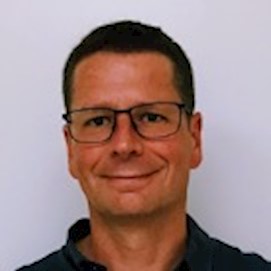 |
Panel 5: Role of standardisation for a sustainable recovery (13:20-14:40)
The COVID crisis impacted every player in the aviation network in an unprecedented way. It modified the operational environment and determined aviation actors to try new tools and procedures to address these challenges and build resilience. The crisis showed that short term goals are not a solution and industry needs long term recovery planning. Sustainable recovery is on the agenda of each stakeholder and it is seen as an opportunity to engage and coordinate actions in this respect to promote overall sustainable mobility via an optimal regulatory, operational, and technical framework.
The panel will exchange on the role of standards in support of the recovery in terms of optimisation of capacity, noise, emissions, procedures and other aspects which will support to achieve aviation sustainability goals.
Moderator:
|
Terry McVenes, President & CEO, RTCA, Inc. Terry McVenes is the President and CEO of RTCA, Inc., a private, non-for-profit Corporation founded in 1935. RTCA brings together the brightest business, technical, operational, and regulatory experts from across the aviation industry to find common ground for higher levels of performance standards in global aviation. McVenes came to RTCA after spending the past decade at The Boeing Company, where he held the position of Director of System Safety and Regulatory Affairs. In this position, McVenes directed operations support to assist countries and customers with regulatory approvals to ensure efficient and effective flight operations. He was responsible for the execution of the Commercial Airplanes safety, regulatory, and rulemaking initiatives throughout the world. McVenes also led Boeing’s relationships with the International Civil Aviation Organization (ICAO), the U.S. Federal Aviation Administration (FAA) Flight Standards Service organization, pilot associations, and other industry groups. He represented Boeing on the Commercial Aviation Safety Team (CAST) and the Aviation Safety Information Analysis and Sharing (ASIAS) Executive Board. Prior to joining Boeing, he served as the Executive Air Safety Chairman for the Air Line Pilots Association, International (ALPA), representing ALPA pilots in airline safety and engineering matters arising within the industry. McVenes has also served as the industry co-chairman for several FAA Aviation Rulemaking Committees, one of which developed the ASIAS program and its corresponding procedures and operations plan. McVenes has testified before Congressional committees of both the U.S. Senate and U.S. House of Representatives and has spoken at many international forums on a wide variety of aviation safety topics. He has also authored numerous articles on aviation safety, which have appeared in national and international publications. In addition to his work in aviation, McVenes has provided expert consultation on safety to the National Highway Traffic Safety Administration (NHTSA), the Alliance of Automobile Manufactures, the helicopter safety community, and the medical industry. He began his airline career in 1978 with Rocky Mountain Airways in Denver, Colorado flying the DHC-6 (Twin Otter) and DHC-7 (Dash 7) aircraft. In March 1985, he was hired by Pacific Southwest Airlines (PSA), which later merged into US Airways. He is rated on the DHC-7, BAe-146, FK-28, DC-9, MD-80, A-320, and B-737, and has more than 17,000 hours of flight time. McVenes currently serves on the Flight Safety Foundation Board of Governors, the Flight Safety Foundation, Limited (Australia) Board of Directors, and the chairs the Federal Aviation Administration Research, Engineering and Development Advisory Subcommittee on Aircraft Safety. He holds a Master of Business Administration from Seattle University with a Leadership Specialization, a Bachelor of Science degree in aerospace engineering from the University of Colorado, and the Certificate of Aviation Safety Management from the University of Southern California. |
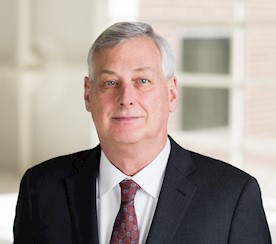 |
Speaker:
|
Marina Bylinsky, Head of Sustainability, ACI Europe Marina Bylinsky joined ACI EUROPE in September 2015 and is responsible for the coordination of all aspects of the association’s sustainability strategy. In this regard, she represents ACI EUROPE in various high-level EU, ECAC and EUROCONTROL fora. She also monitors the administration and ongoing evolution of the global carbon standard, Airport Carbon Accreditation which belongs to ACI EUROPE, and was leading the development of ACI EUROPE’s Sustainability Strategy for Airports. Marina is a graduate of the Institute of Political Sciences in Paris. Prior to joining ACI EUROPE, Marina worked as a Senior Consultant at BearingPoint in France and in Belgium. |
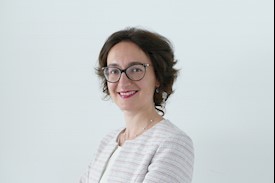 |
|
Carlos Cirilo, Director ATM Infrastructure, SFO-Infrastructure, IATA Mr. Carlos Cirilo is a senior aviation professional with over 30 years of international management and operations experience in civil and military roles. He served as the Brazilian Delegate to the ICAO Air Navigation Commission, the most senior United Nations aviation technical board tasked to set the global aviation policy. Mr. Cirilo hold the rank of Colonel in the Brazilian Air Force with more than 4.500 flight hours in military and flight inspection aircrafts. He was elected to be part of the RTCA Advisory Board. Fluent in Portuguese, English and Spanish, he has a diploma in aeronautical engineering, a master’s in business administration and postgraduate diplomas in telecommunication engineering and system analysis. He is currently the International Air Transport Association (IATA) ATM Infrastructure Director responsible for IATA global policies and positions related to Communications, Navigation, and Surveillance (CNS) / Air Traffic Management (ATM) Infrastructure. |
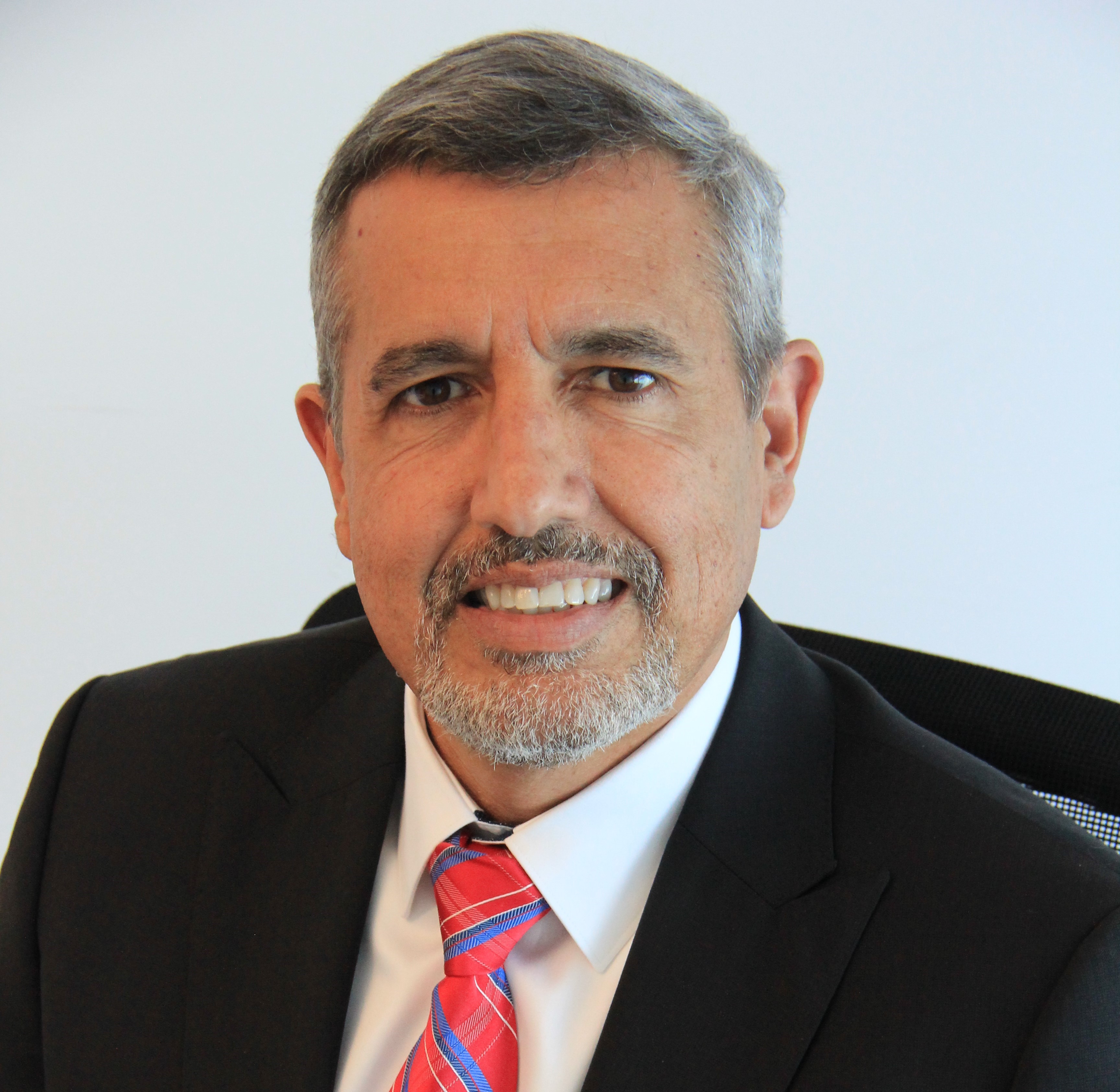 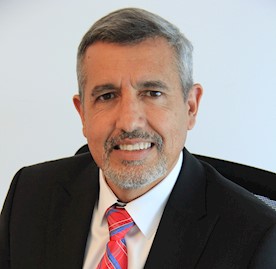 |
|
Frederic Deleau, Acting Executive Vice-president Europe, IFATCA Frédéric took over the responsibilities of Executive Vice-President Europe for IFATCA in April 2020 amid the COVID crisis. Under his leadership in Europe, IFATCA is motivated to bring credible alternative solutions for the reorganisation of Air Traffic Management (ATM). IFATCA has been vocal and critical on the SES2+ package as proposed by the European Commission. His professional goal: to build as a reality the resilience of an essential infrastructure and develop a coherent defragmentation to ensure a safe, stable, performant and sustainable Network. Frédéric has more than 30 years of aviation industry experience. After a short period working for an American carrier and a Japanese company at the beginning of his career, he has spent his entire career with EUROCONTROL primarily as Air Traffic Controller Officer and instructor. While ensuring the separation and smooth transition of aircraft over the Western part of Germany from the EUROCONTROL Maastricht Upper Area Control Centre, he occupied various high-level positions in the social arena at local or international level, allowing him to contribute for years to numerous EUROCONTROL Executive and Supervisory Boards and Committees as President of the MUAC Staff. |
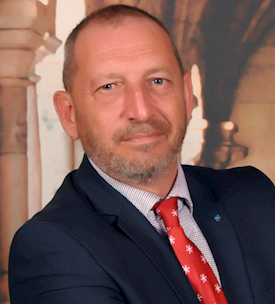 |
|
Vincent De Vroey, Director of Aviation, ASD Vincent De Vroey (born 1971) is Director of Civil Aviation at the AeroSpace and Defence Industries Association of Europe (ASD) since November 2014. In this role, he is in charge of the management of the ASD Civil Aviation Business Unit and he represents ASD vis-à-vis the European and international civil aviation community. He is also representing the civil equipment manufacturers at the Board of the SESAR-Joint Undertaking and the Provisional Council of Eurocontrol. Vincent has extensive experience in civil air transport industry and European trade associations. Before joining ASD, Vincent De Vroey was General Manager Technical & Operations at the Association of European Airlines (AEA). In this role, he was also the Chairman of the European Aviation Safety Agency (EASA) Advisory Board from 2009 until 2014 and he represented the civil airspace users on the Board of the SESAR Joint Undertaking (SESAR-JU). Vincent De Vroey holds a Master of Science (1993) in Electronics Engineering from the Free University of Brussels (VUB) and a Master of Science (1994) in Transport and Business Economics from the Free University of Brussels (VUB). In 1988, Vincent represented Belgium at the International Chemistry Olympiads after ending second at the national competition. Vincent De Vroey is Belgian/Flemish and speaks fluently in Dutch, English, French, Italian and German and he has some basic knowledge of Spanish. In his spare time, Vincent enjoys family & friends, traveling, cy |
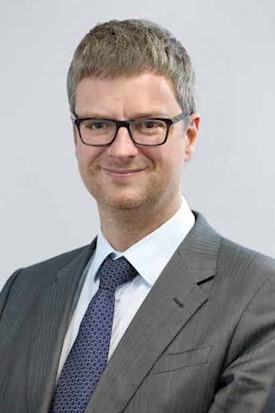 |
|
Johnny Pring, Manager Europe Policy and Advocacy, CANSO Johnny Pringis Manager Europe Policy and Advocacy for CANSO. In this capacity, he is responsiblefor sustainability issues and coordinated CANSO’s input for the recently published Destination 2050report. He also covers matters related to the EU’s ATM Performance andCharging Scheme and socialdialogue, as well as CANSO Europe’s Communications. Prior to working for CANSO, he heldnumerous positions with responsibility for EU public affairs, latterly focused on public health issues.He is a qualified English lawyer andholds a Master of European Studies from the KU Leuven |
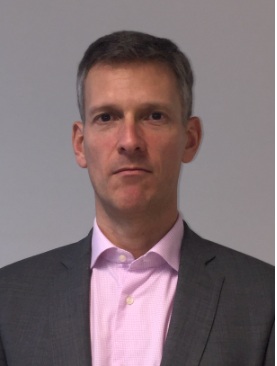 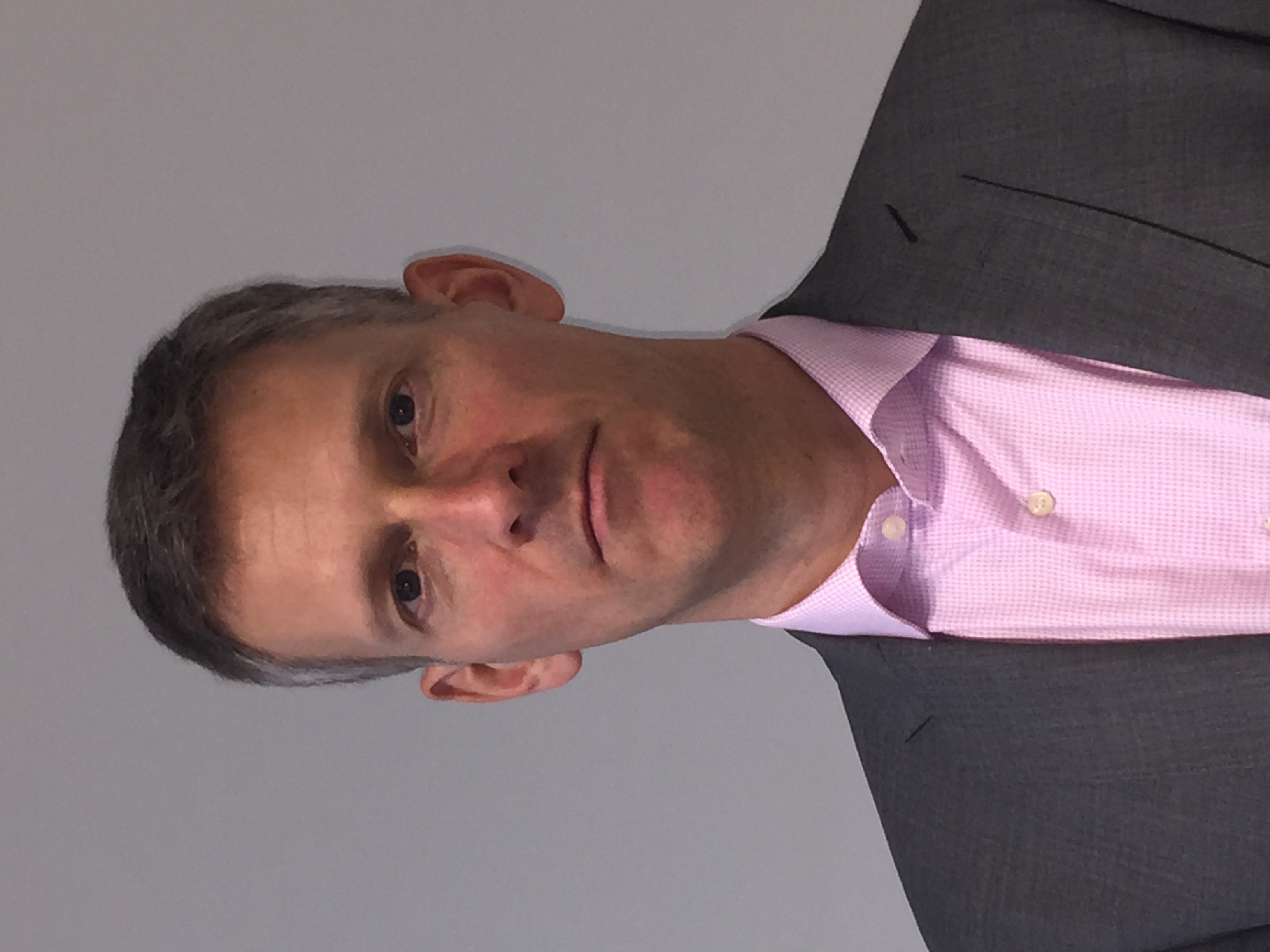 |
Closing remarks and EUROCAE Awards - virtual conference (14:40 - 16:00)
Sponsors
Partner
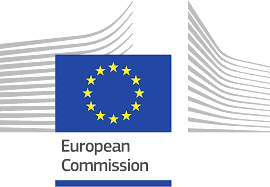
EUROCAE ATM STANDARDISATION ACTIVITIES IN SUPPORT OF SINGLE EUROPEAN SKY HAVE RECEIVED FUNDING FROM THE EUROPEAN UNION.
Silver sponsors
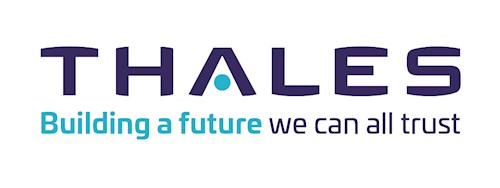
Thales is the world leader in air mobility solutions. An impressive 2 out of every 3 planes around the world land and take-off with the help of Thales.
We combine half a century’s experience in development and deployment with an unrivalled worldwide installed base, advanced technology and ground-breaking innovations to deliver solutions that are continually adapted to the ever-changing aviation system’s needs.
Thales offers integrated gate-to-gate solutions, from pre-flight to landing, ensuring airport safety, efficient traffic handling operations, data sharing on aircraft and seamless handover operations between territories.
Thales is trusted by key ATM decision makers across 170 nations, and helps key decision makers master complexity and make timely decisions for better outcomes.
Thales delivers efficient and innovative products and services, for better decisions and better results.
Learn more about Thales Aerospace at www.thalesgroup.com/aerospace

Frequentis, headquartered in Vienna, is an international supplier of communication and information systems for control centers with safety-critical tasks. Such 'control center solutions' are developed and marketed by Frequentis in the business sectors Air Traffic Management (civil and military air traffic control, air defense) and Public Safety & Transport (police, fire brigade, ambulance services, shipping, railways). As a global player, Frequentis operates a worldwide network of branches, subsidiaries and local representatives in more than 50 countries.
Products and solutions from Frequentis can be found in over 30,000 operator working positions and in approximately 140 countries. Founded in 1947, Frequentis considers itself to be the global market leader in voice communication systems for air traffic control with a market share of around 30%. In addition, the Frequentis Group's AIM (aeronautical information management) and AMHS (aeronautical message handling) systems, as well as GSM-R systems for Public Transport are industry leading global solutions.
The shares of Frequentis AG are traded on the Vienna and Frankfurt Stock Exchange under the ticker symbol FQT (ISIN: ATFREQUENT09). In 2019, the Frequentis Group had about 1,850 employees worldwide and generated revenues of EUR 303.6 million and EBIT of EUR 17.2 million. For more information, please visit www.frequentis.com.
Bronze sponsors

Skyguide provides air navigation services for Switzerland and certain adjacent parts of neighbouring countries. With its 1,500 employees at 14 locations in Switzerland, the company guides some 1.3 million civil and military flights a year safely and efficiently through Europe’s busiest airspace.
Skyguide is well integrated into the international air navigation services community and, with its innovative and customer-minded solutions, helps enhance Switzerland’s appeal as a place to live, work and do business."
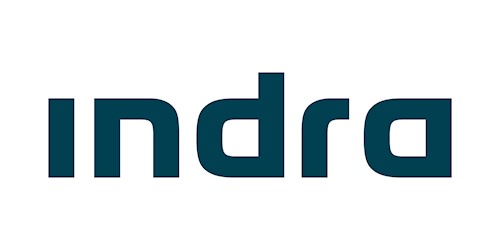
“Indra is a leading global technology and consulting company aimed to become the technological partner for core business operations of its customers worldwide. It is a world leader in providing proprietary solutions in the Air traffic, Transportation and Defense markets, and a leading firm in Digital Transformation services through its affiliate Minsait.
With more than 100 years of combined experience in the air traffic management industry, Indra has successfully installed more than 300 air traffic control centers in the five continents, representing more than 25% of total world airspace, and implemented over 5,700 ATM/CNS solutions proving to be a leading player in every segment of the industry. In the field of R&D, Indra is one of the leading companies in SESAR program, leading some of the most innovative projects aimed to develop state-of-the-art solutions for the air traffic management industry such as the remote digital tower, the UTM solution and even a Space based CNS platform. Furthermore, Indra is a founder and only technological provider of the ITEC Alliance aimed to develop the Single European Sky initiative.”
Our website and the link for Air Traffic.

Honeywell Aerospace is a Tier 1 supplier, with products and services found on virtually every commercial, defence and space aircraft worldwide. Its technology portfolio spans aircraft engines, cockpit and cabin electronics, wireless connectivity systems, mechanical components, and more. Many of Honeywell Aerospace’s research activities are led by its Advanced Technology department, which draws on the expertise of some of the best scientists and engineers across Europe, India, America, and Asia, to innovate in line with local market and customer requirements and trends. The department’s facilities in these locations are equipped with state-of-the-art research and test laboratories enabling research, development, integration, verification, and validation of a wide range of aircraft systems. Honeywell’s Advanced Technology division is part of Europe’s aerospace research ecosystem and collaborates with many OEMs, universities, research centres, SMEs and industry initiatives including SESAR, Clean Sky, Horizon 2020, and other national research projects.
For more information, visit www.honeywell.com or follow us at @Honeywell_Aero.
Collins Aerospace Systems, a unit of Raytheon Technologies Corp. (NYSE: RTX), is a leader in technologically advanced and intelligent solutions for the global aerospace and defense industry. Created in 2018 by bringing together UTC Aerospace Systems and Rockwell Collins, Collins Aerospace has the capabilities, comprehensive portfolio and expertise to solve customers’ toughest challenges and to meet the demands of a rapidly evolving global market. For more information, visit CollinsAerospace.com.
Collins Aerospace Systems corporate video.
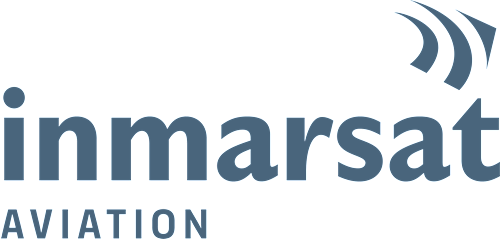
With over 30 years’ experience in commercial and business aviation, no other connectivity partner has a deeper understanding of customers’ needs and the opportunities reliable, high quality broadband promises them. Today over 200 airlines rely on Inmarsat services, and now, our next generation solutions make the full potential of the complete connected aircraft a reality.
Our services, including GX Aviation, European Aviation Network and SwiftBroadband-Safety, support digital transformation from cabin to cockpit. Reliable, high-speed connectivity that gives our customers the confidence to launch inflight innovations that deliver commercial advantage.
We’re ready to help you take advantage of the vast potential of the complete connected aircraft. Whatever your challenges. Whatever the future. Wherever you fly.
